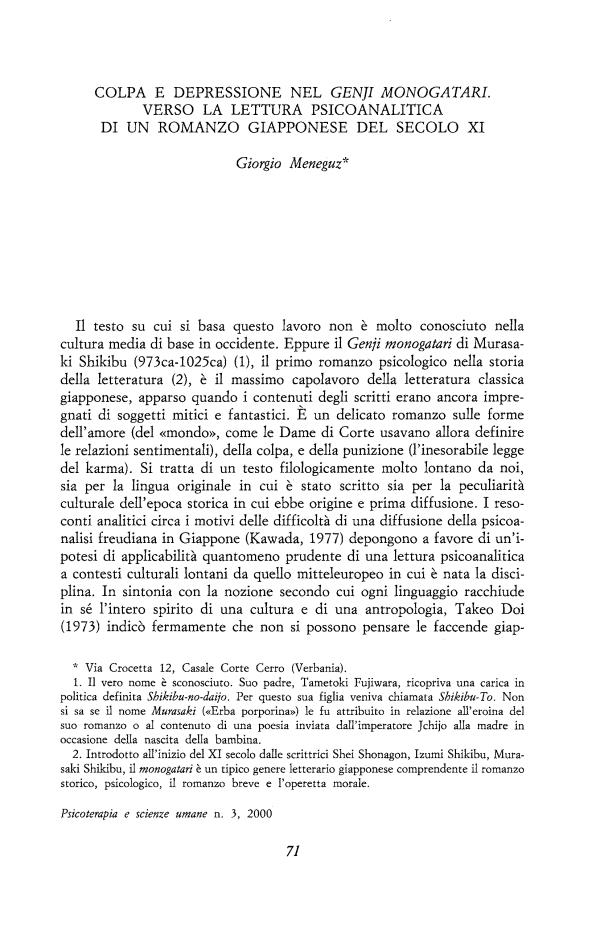Colpa e depressione nel Genji Monogatari. Verso la lettura psicoanalitica di un romanzo giapponese del secolo XI
Journal title PSICOTERAPIA E SCIENZE UMANE
Author/s Giorgio Meneguz
Publishing Year 1 Issue 2000/3
Language Italian Pages 14 P. File size 688 KB
DOI
DOI is like a bar code for intellectual property: to have more infomation
click here
Below, you can see the article first page
If you want to buy this article in PDF format, you can do it, following the instructions to buy download credits

FrancoAngeli is member of Publishers International Linking Association, Inc (PILA), a not-for-profit association which run the CrossRef service enabling links to and from online scholarly content.
Colpa e depressione nel Genji Monogatari. Verso la lettura psicoanalitica di un romanzo giapponese del secolo XI ABSTRACT: The author reflects about a psychoanalytical interpretation of The Tale 0/ Genji (Genji monogatari), considered by many to be the greatest novel of the ancient ]apanese literature. It was composed by Murasaki Shikibu (about 1000 A.D.), a lady-in-waiting for the Empress Akiko at the imperial court in Heian, now Kyoto. The tale is mostly full of poetical explorations about themes of love, affection, friendship, loyalty, into the social political Heian's world and in conformity with Buddhist convictioJ;l in the vanity of the world. A comprehensive reading of the text including Murasaki's life and her background, gives us the possibility to catch the human attempt to cure depression through narration.
Giorgio Meneguz, Colpa e depressione nel Genji Monogatari. Verso la lettura psicoanalitica di un romanzo giapponese del secolo XI in "PSICOTERAPIA E SCIENZE UMANE" 3/2000, pp , DOI: